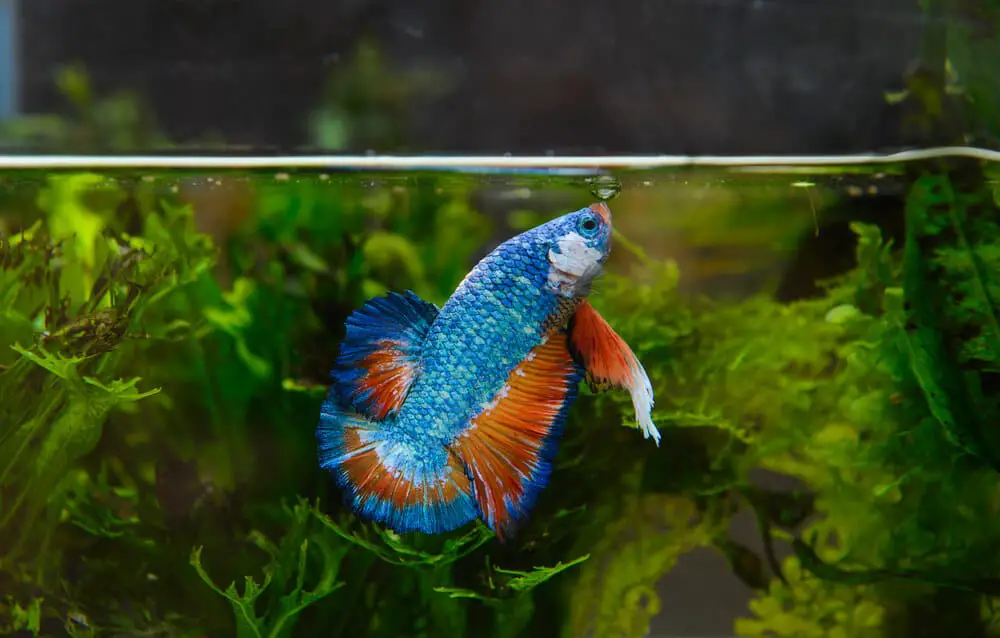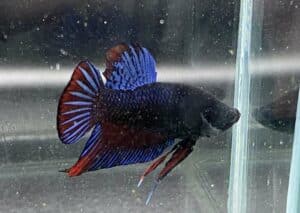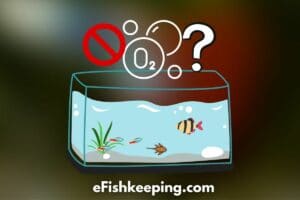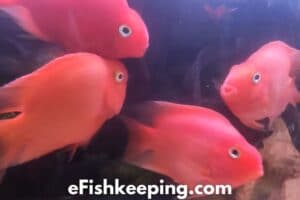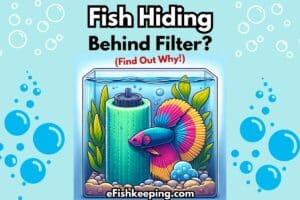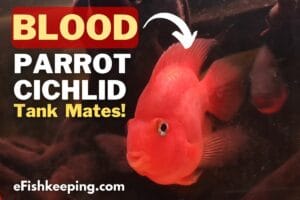Overfeeding or underfeeding your betta fish can be bad for their health.
It’s super important to know the right times to feed them.
In this guide, you’ll find out the 7 top signs that show your betta fish is hungry.
We’ll also go over how much and how often to feed them, plus what can happen if you feed them too much or too little. Read on till the end to get all the answers!
How To Tell Your Betta Fish Is Hungry?
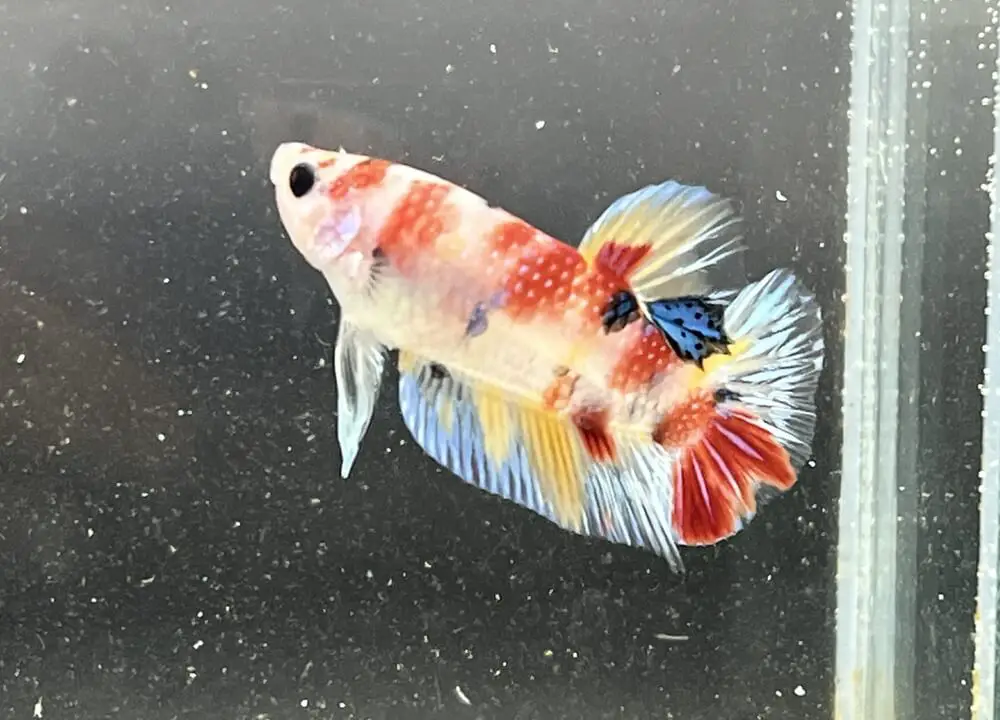
1. Increased Tank Movements
Swims to the Top:
If your betta shakes and constantly moves to the tank’s surface every time you come near, it’s a clear sign they’re anticipating a meal.
This instinctual behavior suggests they’ve associated your presence with feeding time.
Swift and Darting Motions:
Watch out for a sudden spike in their swimming speed or quick, darting movements. Your betta might be trying to tell you something: “I’m hungry!”
Try moving your finger slowly above the tank. If your betta follows your finger eagerly or seems particularly fixated on any potential food source, they’re giving you a clear message.
2. Glass Surfing
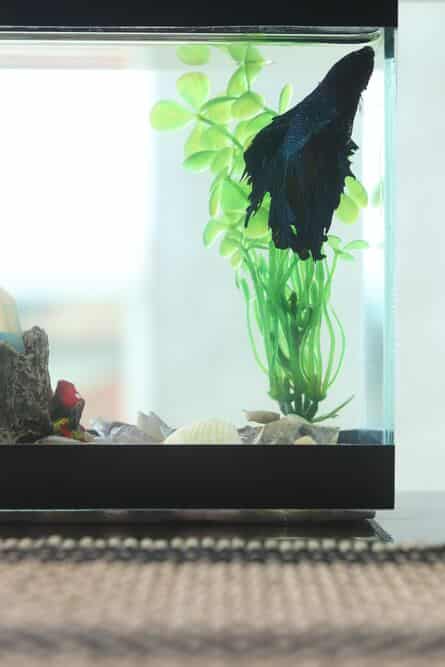
It might look quirky or even amusing, but if your betta is constantly rubbing or pressing against the glass, they could be signaling distress or hunger.
This behavior, combined with a repeated pattern of swimming up and down the tank’s walls, often termed “glass surfing”, is a sign you need to check their feeding schedule.
3. Belly Appearance:
If your betta’s belly appears flattened or slightly sunken, it’s a tell-tale sign they could use a little more sustenance.
Additionally, if there’s a pronounced curve just behind their gills, they’re likely in need of a meal.
By the way, did you know that some betta fish also have black gills? Read the guide to learn more!
4. Aggressive Behavior
Bettas are known for their fiery personalities. However, if you notice an uptick in aggressive behavior, especially towards other fish in multi-fish setups, hunger might be the cause!
While bettas can be territorial, sudden aggression can often stem from an empty stomach.
It’s their way of saying, “Hey, where’s my food?” 🙂
5. Reacting to Food Stimuli
Food doesn’t always have to be in their mouths for bettas to show they’re hungry. Drop a food pellet and see how your fish reacts.
If they’re eyeing or chasing after it, it’s a clear indication they’re ready to chow down.
Additionally, if you use tweezers or tools to place food in the tank, watch their reaction. Nipping at food tweezers is their way of voicing their anticipation.
6. Nipping At Plants or Scouring The Substrate:
While bettas are primarily carnivores, there’s one behavior you shouldn’t overlook.
Nipping at live plants or sifting through the substrate!
Although these aren’t their staple foods, when they start searching through plants or the bottom of the tank, it’s a pretty clear sign they’re desperately looking for more to eat.
7. Lethargy And Looking Weak
This might be the most concerning sign. If you find your betta hiding behind filters, plants, or tucked away in a tank corner, and they seem more sluggish than usual, hunger could be the underlying issue.
A fish’s energy comes directly from its diet. When they’re low on fuel, they become lethargic. It can also have an affect on their body. Is your betta looking too weak or thin than normal?
But, before jumping to conclusions, drop a pellet or two and observe. Their reaction will give you the insight you need.
Can You Overfeed A Betta Fish?
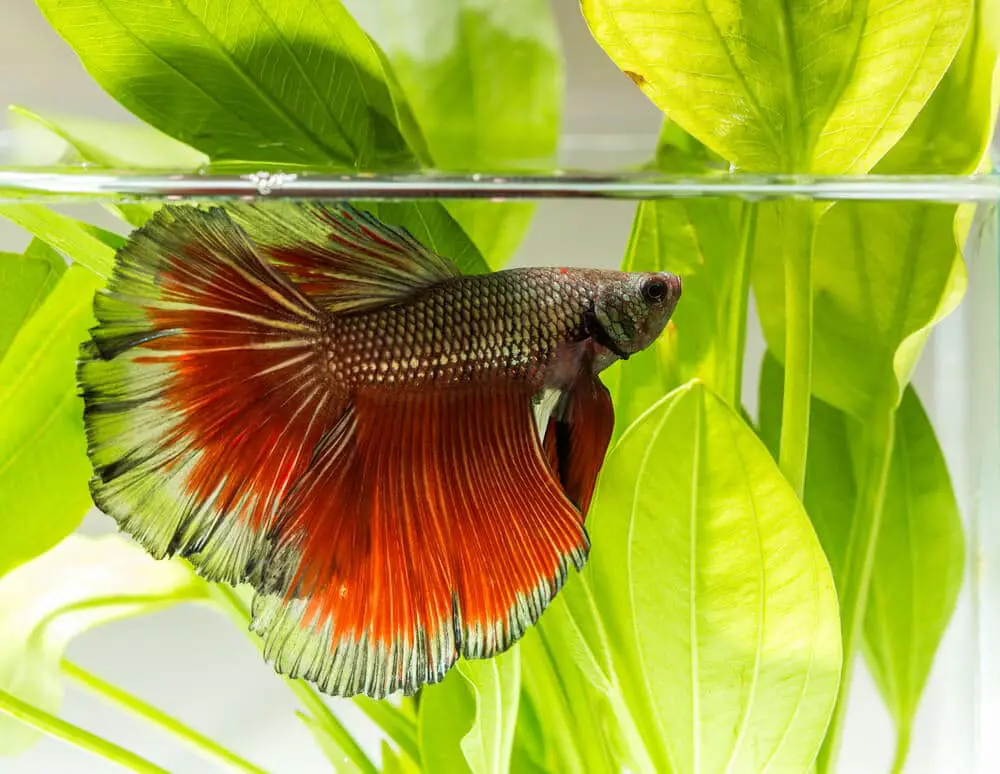
Yes, it’s possible. It’s easy to assume that betta fish need more food than they should which ultimately leads to overfeeding.
Now I know what you’re thinking:
Why does my betta fish like to eat all the time?
In the wild, bettas don’t have a daily feeding schedule. They’re opportunistic feeders. This means they eat whenever they come across food, not knowing when their next meal might be. So, when your betta seems eager to eat all the time, it’s just following its natural instinct.
Ever notice how your betta dashes to the top when you approach the tank or move your hand above the water? It’s not necessarily hunger.
Bettas are stimulated by movement. In their natural habitat, a ripple or shadow could signal potential prey. In captivity, your movements replicate that signal, sparking their feeding instinct.
A fish’s environment also plays a crucial role in its behavior.
Imagine being in a plain room with no fun toys, no distractions, just four walls. Sounds dull, right? So think how a betta in a tank with no mental stimulations would feel!
Solution? Add plants, caves, and other tank decorations to make it a more interesting place for your betta.
This not only beautifies your tank but gives your betta places to explore, hide, and display its natural behaviors. Without this stimulation, boredom or stress may kick in, leading your betta to seek nothing other than that one thing that’s always exciting – food.
And that’s also another reason why your betta fish always seeks for food. If your betta isn’t expending energy exploring or interacting, where does that energy go? Often, it’s redirected towards food-seeking behaviors.
So, if you see your betta constantly swimming up and down or towards the top, it might not be only because of hunger. It could be a sign that your betta’s energy, which would usually be spent exploring a rich environment, is now being channeled into seeking food.
Remember, feeding isn’t just about hunger. For a fish in a less engaging environment, it’s often the most interesting activity to do.
However, most of the time, if a fish is glass surfing, it’s a sign of stress. So, there’s a fine line of difference you need to spot and adjust their feeding accordingly.
What Happens If You Overfeed A Betta Fish?
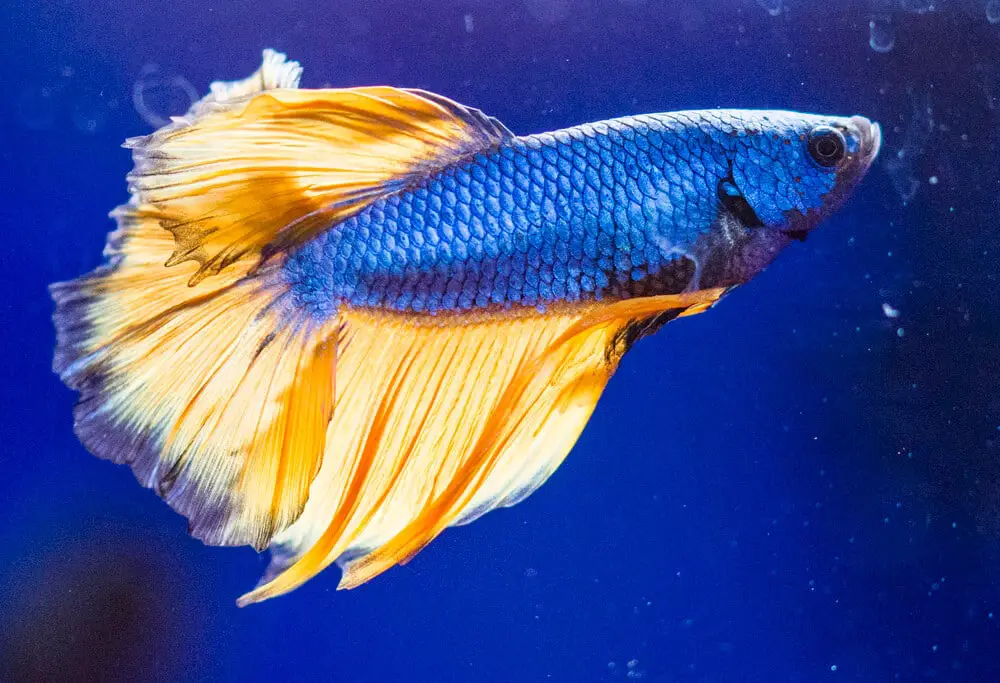
Here’s what you need to know about the after-effects of overfeeding a betta fish:
#1. Bloating and Digestive Distress:
The first sign you might notice is bloating. A swollen belly is a clear indication that your fish has been overfed.
It can lead to real discomfort for your fish, making movements cumbersome and swimming more challenging. Additionally, overconsumption can lead to digestive issues, manifesting in constipation or even more severe gastrointestinal problems.
#2. Decreased Lifespan:
Consistently overfeeding can lead to a decreased lifespan for your betta fish. This isn’t just about the immediate digestive problems.
Over time, regular overfeeding results in health complications, which can reduce the vitality and overall life expectancy of your pet.
#3. Water Quality Takes A Dive:
Excess food doesn’t only impact the fish directly. It also deteriorates the environment in which they live. Uneaten food particles sink to the bottom and begin to decompose disturbing the normal water parameters.
They can significantly boost the levels of ammonia and nitrite in the water. A spike in these chemicals can quickly make the tank environment toxic for your betta.
Can I Skip Feeding My Betta Fish?
Consistency is crucial when it comes to feeding your betta fish.
However, it’s worth noting that many experienced betta fish owners fast their bettas once a week!
Why? Betta fish predominantly consume a high-calorie, protein-rich diet. By skipping a meal once a week, you provide their digestive systems with a much-needed break, ensuring it operates at its peak.
By the way, Did you know that Betta fish can go without food for up to 14 days?
Interestingly, after the fasting day, some betta enthusiasts introduce peas into the diet. Under regular circumstances, bettas might turn their noses up at plant-based food, given their carnivorous nature.
But post-fasting hunger can make them more interested in a pea treat.
Why introduce peas? Well, they’re an excellent remedy for constipation in fish. And considering bettas’ susceptibility to constipation and related digestive complications, peas can be a lifesaver.
Pro-Tip: If you’re leaning towards a simpler approach, feeding your bettas once or twice daily without intermittent fasting works too. But it’s worth noting that the occasional meal skip won’t harm them. Just ensure it remains an occasional practice, rather than the norm.
What Happens If You Underfeed A Betta Fish?
While betta fish have the remarkable ability to survive without food for up to 1-2 weeks, it’s essential to note that just because they can doesn’t mean they should.
Consistent feeding ensures they stay healthy, vibrant, and active.
So, what should you know about the impacts of skipping meals for your betta fish for a long time?
One of the first and most evident signs of underfeeding is weight loss. As days go by without food, your betta fish will begin to shed weight. (Read how much a betta fish weighs in this guide).
Betta fish have a life expectancy of around 2-3 years. However, it’s not uncommon to lose a betta fish much sooner than expected. And one of the main reasons behind reduced lifespan is prolonged underfeeding.
Underfeeding can make the betta fish more weak over time. That can further make them susceptible to various diseases.
Speaking of betta fish, you may also wonder about what is the age of betta fish at pet stores. Knowing their age helps in tailoring their diet, environment, and care to ensure their optimal health and longevity.
How Much Food Do Betta Fish Need?
Pellets are a common choice for betta fish, offering balanced nutrition in a bite-sized format.
For most bettas, 2-3 pellets once a day is a reliable guideline. If your betta fish is particularly active or larger in size, you can consider increasing this to four pellets or opting for two feeding sessions in a day.
However, it’s essential to tread carefully and avoid giving more than this, as overfeeding can lead to health issues.
Remember, a betta fish that’s always on the go, energetically exploring its tank, will likely require more sustenance than one that’s more relaxed.
Coming to live or frozen foods, give them 1-2 pieces at least once a day.
Some live foods can be rich in certain nutrients. So it’s a good idea to vary the diet and not rely solely on them everyday. Consider them as a treat given to your betta fish occasionally.
To give you perspective, in a given week, you can feed your Betta live/frozen food for two days. And in the remaining five days you can give the regular pellet foods.
Feeding isn’t a one-size-fits-all approach. Your betta’s food intake will depend on various factors:
- Size
- Age
- Activity levels
So, how do you determine the ideal feeding amount?
Observing your betta is the key. Monitor its behavior post-feeding. If it’s searching frantically for more food, it might be a sign to adjust the quantity slightly.
But if you notice uneaten food or your betta seems less active, you might be overfeeding.
What To Feed Your Betta Fish?
Varied Diet: Spice It Up!
Every pet thrives on variety, and betta fish are no different.
Avoid sticking to a single type of food. Mix it up with a blend of dry, live, and frozen foods. This not only ensures nutritional balance but also keeps your betta excited about meal times.
Quality First: Prioritize Nutrition
When selecting foods, always go for those with high protein and low filler content. Betta fish are primarily carnivorous, so a protein-rich diet is essential.
Beware of cheaper foods; they might seem like a bargain but often contain fillers that offer no nutritional value and can even harm your betta.
If you’re serious about providing the absolute best for your betta fish, then Northfin Betta Bits on Amazon should be your top choice. Yes, these betta fish pellets might be on the pricier side, but with a clear reason behind it.
Crafted meticulously for betta fish, these pellets stand out because they contain no fillers. Every bite is packed with nutrients tailored specifically for the dietary requirements of bettas, ensuring they get the quality they deserve.
However, if you are looking for a budget option, then you go with the Fluval Bug Bites Betta Fish Food available on Amazon. Fluval is a well-known brand in the aquarium space so you can be assured about the quality of the food.
How Often To Feed Betta Fish?
Adult Bettas:
A simple rule to follow for mature bettas is feeding them once or twice a day. Overfeeding can cause obesity and other health issues, so moderation is crucial.
Betta Fry:
These little ones are growing, and they’re growing fast! This rapid growth means they need food—and a lot of it. Feed them multiple times a day, but remember to give tiny portions each time to avoid overfeeding.
Best Live Foods You Can Feed Your Betta Fish
Your betta fish will absolutely love live food, which mimics their natural diet in the wild. Some great choices include:
- Brine Shrimp: A favorite among betta owners and for a good reason. They’re packed with nutrients.
- Daphnia: Tiny water fleas that are a perfect bite-size snack.
- Wingless Fruit Flies: Get ready for some action. Your betta will have a ball chasing these around.
- Bloodworms: Your betta won’t be able to resist eating them!
- Microworms: Small but mighty when it comes to nutrition.
Best Frozen Foods You Can Feed Your Betta Fish
While live foods are excellent, frozen foods come in handy when you want to store food for longer periods. They also tend to be less messy. Some top frozen foods include:
- Bloodworms: When frozen they retain their rich protein content, making them an equally excellent choice.
- Mysis Shrimp: Another protein-packed delight.
- Frozen Brine Shrimp: Aside from nutrition, these enhance your betta’s coloration.
- Daphnia: Ideal for occasional feeding. They provide a nice change from the regular diet.
Tip: Avoid relying on just one food source. Instead, give them a mix of all so that your bettas can get all the required nutrients from a variety of sources.
What To Do If A Betta Fish Is Not Eating?
1. Examine the Water: Your Betta’s Comfort Zone
The very first thing you should inspect is your betta’s living conditions.
- Temperature – Bettas thrive in waters ranging from 76 to 82°F (24 to 28°C). A sudden drop or rise can affect their appetite.
- pH Levels – Ensure the water pH remains between 6.5 and 7.5. An imbalance can make your betta uncomfortable and reduce its desire to eat.
- Ammonia/Nitrite – Bettas are sensitive to these chemicals. Always make sure these levels are at zero. If they’re higher, it could indicate a problem with your tank’s nitrogen cycle, which can negatively impact your fish’s appetite.
Having a good quality filter helps a lot in maintaining proper water parameters of your betta tank. Check out this guide on the best sponge filter for betta fish to learn more.
2. Switch It Up: Varying Their Diet
Sometimes, your betta might just be bored with its usual fare.
Try something new. If you’ve been feeding dry pellets for a while, offer some live or frozen food as a treat. This could reignite their interest in eating.
3. Health Check: Identifying Illness Signs
Loss of appetite is often an early warning sign that your betta might be feeling under the weather.
Watch Out For: Lethargy, color changes, shredded fins, difficulty swimming, or visible spots on their body. Any of these symptoms could indicate illness.
4. Remove Stress Signals
If you have kept any tank mates with your betta, make sure they aren’t harassing the betta all the time.
Some of the compatible tank mates with betta fish include cory catfish, and neon tetras. Sometimes, you can also keep a betta fish with guppies if you have a gentle betta fish and a big enough tank.
While some of the incompatible tankmates include goldfish, angelfish, cichlids or any other fin nipping fish.
As you create a calm environment and remove any causes of stress from the tank, your betta will have a better time recovering from the shock. Gradually, it will start displaying its normal behavior.
Also, remember that sudden changes in light, loud noises, or frequent disturbances around their tank can stress your betta. Aim for a calm, consistent environment.
Final Takeaways
So there you have it! To quickly wrap up, in this guide we covered the 7 prominent signs of a hungry betta: increased tank movements, glass surfing, belly appearance, aggressive behavior, reaction to food stimuli, nipping at plants, and lethargy.
Overfeeding can be harmful, resulting in digestive issues, decreased lifespan, and deteriorating water quality.
On the other hand, underfeeding can lead to weight loss and susceptibility to diseases. Feeding bettas 2-3 pellets daily is generally advised, but observation is key.
Ensure a varied diet and occasionally introduce live or frozen foods. With proper care, your betta fish can live happily for quite a long time. Happy Betta Keeping!
Hi! I’m Praveen Ghoshal, the founder of eFishkeeping.com. Inspired by my Dad, I got interested in fishkeeping when I was a kid. Since then, I have been involved with this hobby. Currently, I have 3 fish tanks at our home, and I enjoy this hobby with my full family. Read more about me here.

